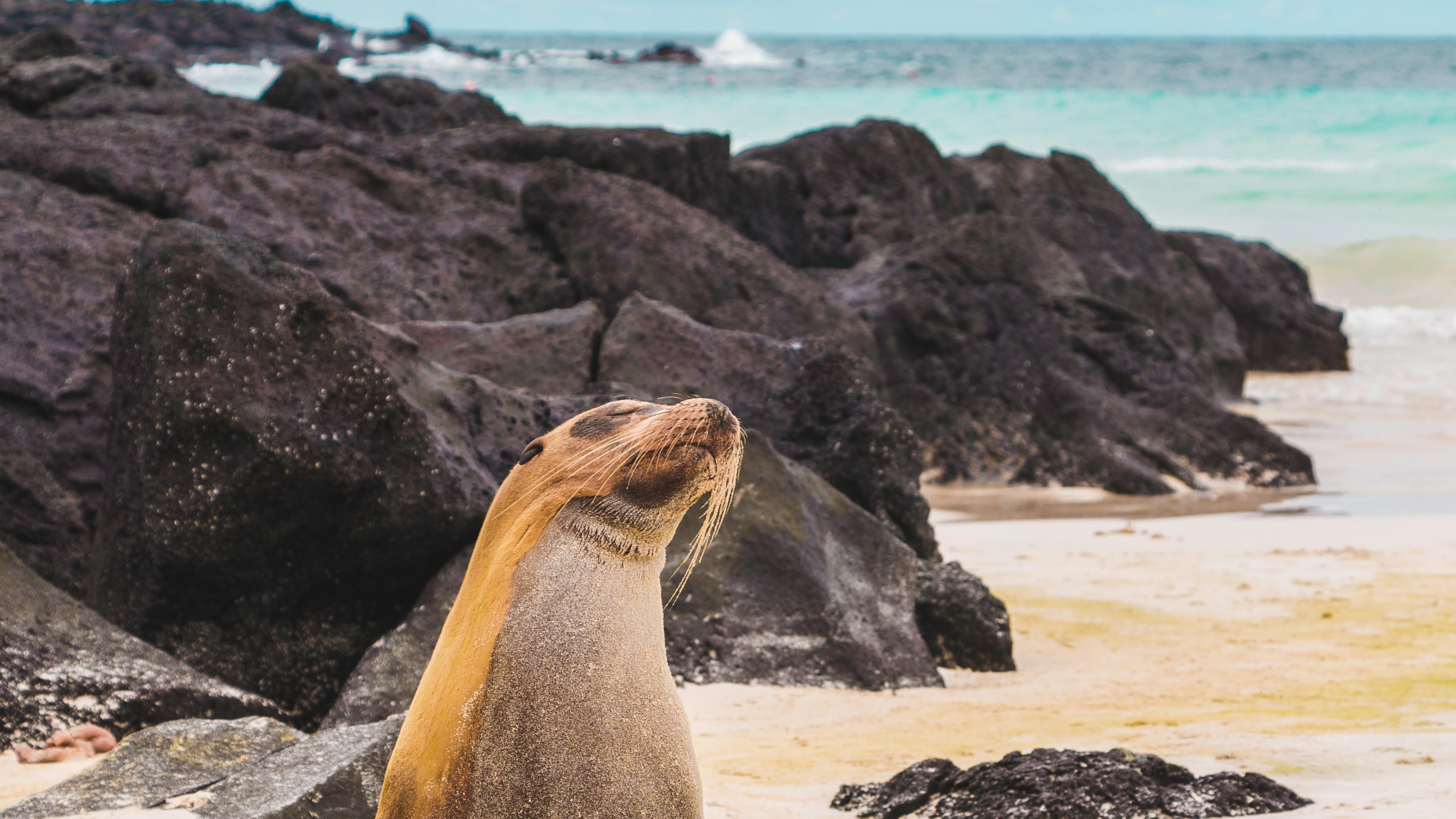Travelers on EF Study Abroad programs can receive our EF/Nobel Prize Museum Global Citizen Certificate, issued by EF Education First and the Nobel Prize Museum, upon completion of a multimedia project based on their study abroad experience. The Global Citizen Project is designed to equip students with the skills to be leaders for peace and global prosperity and can use this certificate of completion in their own resumes, LinkedIn profiles, and portfolio. Learn more about our Global Citizen Project.

Our travelers responded to this prompt: The Nobel Prize Museum celebrates the world-changing ideas of the Nobel Laureates, and their commitment to making the world a better, more truthful place. How did your travel experience help you deepen your appreciation of the global dimensions of your program, uncover a truth about the world, develop a new idea, or provide you with the knowledge, skills and attitudes that will enable you to contribute to making the world a better place?
Galapagos Essay
Project submitted by: Alec J. Mothersele, University of Tennessee at Martin
The world around us from an outsider’s perspective seems to be a very open place where people from all over the world interact with each other freely. However, this is not the case as people are isolated from other cultures but through the trip to Ecuador and the Galapagos I was able to close the gap and see the world for the multi-aspected thing that it is, and how the isolation between us will cause nothing but problems down the line.
The world is not as simple as people perceive it to be, and due to this the progress of a developed nation could be a major hindrance to a less developed nation. There can be no doubt that technology benefits most who use it, but not everyone can keep pace. I saw an example of this in Ecuador, where the power lines were a malformed hodgepodge of wires thinner and of weaker material than in the US where the wires are stronger and thicker. This technology of power lines shows signs of relative infancy in Ecuador, as in many ways the nation is several decades behind us. but unlike the US hasn’t created a proper system to manage this trash. This as well as inferior city design has made Quito, a reflection of Ecuador, a land with natural resources and promise but not much money, unable to progress to the point of developed nations. This is not to say all aspects of the US and Ecuador are different as there are some fortunate and unfortunate similarities. As with the US, there are many good, hardworking people there who despite leading different lives than people are accustomed to, still live well. Though with good people there are always the bad, and evil makes friends quickly. A dramatic example of this was seen in Quito, as our tour guide pointed out that a subway system is fully developed and ready to go, but due to corruption not a single politician of any rank will sign for it. This is not to say the same thing is present as much in the US; but every developed nation must deal with some level of corruption. All of these problems could be solved or melded by some sort of dialog between people of nations; but since people are unable, unwilling, or unsure of how to start a conversation, people are often left with our own national problems with nobody else to talk to about these issues, leading to the issues never going away. Overall, despite the complexity of the world around us, the similarities between people can create a profound connection beyond language and class and possibly lead the world to become a better place.
A better place can’t be created through isolation and fear, something which decays both the once great nations and the people who live within them. Nations are not meant to stand alone, and when they do it can create severe issues for the people within them. This was seen in Quito with the infrastructure where there were often lines of thousands of cars and traffic was ruthlessly aggressive, likely due to the constant traffic jams. This matters as it shows that the city is in need of major infrastructure improvements, and that the people who live in the city are either all desperate to get where they are going, be it to their work, families, or personal lives. The lack of help from other nations in this regard both shows the general corruption of the region and how stuck a nation can feel when it is afraid to call for help having to make the decision of whether to maintain the predictable but poor situation it has, or risk worse conditions for a better situation. The decision may be obvious to some, but it is the people of the nation who should be the focus as their satisfaction will ultimately shape the nation’s fate. During my stay in Ecuador, I did not see satisfaction in the people as the people I saw were either trying their best to live their lives despite their government or bitterly compliant to their government despite having different opinions on how it should be run. Morale was not very high, and as the country is relatively poor, there are no guarantees moving forward that the country will last too long as if the people are not proud of their nation they won’t look back when it falls. Fear also plays a factor, as due to complex international alliances nations which can change for the better can’t or won’t due to fear of powers manipulating and destroying them during their vulnerable phases of change and reorientation. There is an appropriate amount of fear which is healthy, as the world is often a hostile and dangerous place; but any more than that is at best counter-productive, and at worst can ruin any chance a nation has to succeed.
These things are real problems, but through communication with other nations, and most importantly, the people in other nations, we can begin to spread ideas which overtime will make the world a better place. I plan to make the world a better place through someday opening doors which many would be too scared to open themselves; people are not as different as they seem despite differing languages and cultures. This is especially true in the age of the internet, where information and communication is readily available. However, a day will come where someone, anyone, has to be the first to open the door and start a conversation. The world is changing all around us constantly and people can be made observant of it if they are willing or able to expand their boundaries. These things are all possible if we genuinely try, and this perspective and hopefully many more down the line would not be possible without this travel experience to see the world beyond the single edge of a multi sided diamond which is the human experience.
See the other Global Certificate projects here.

